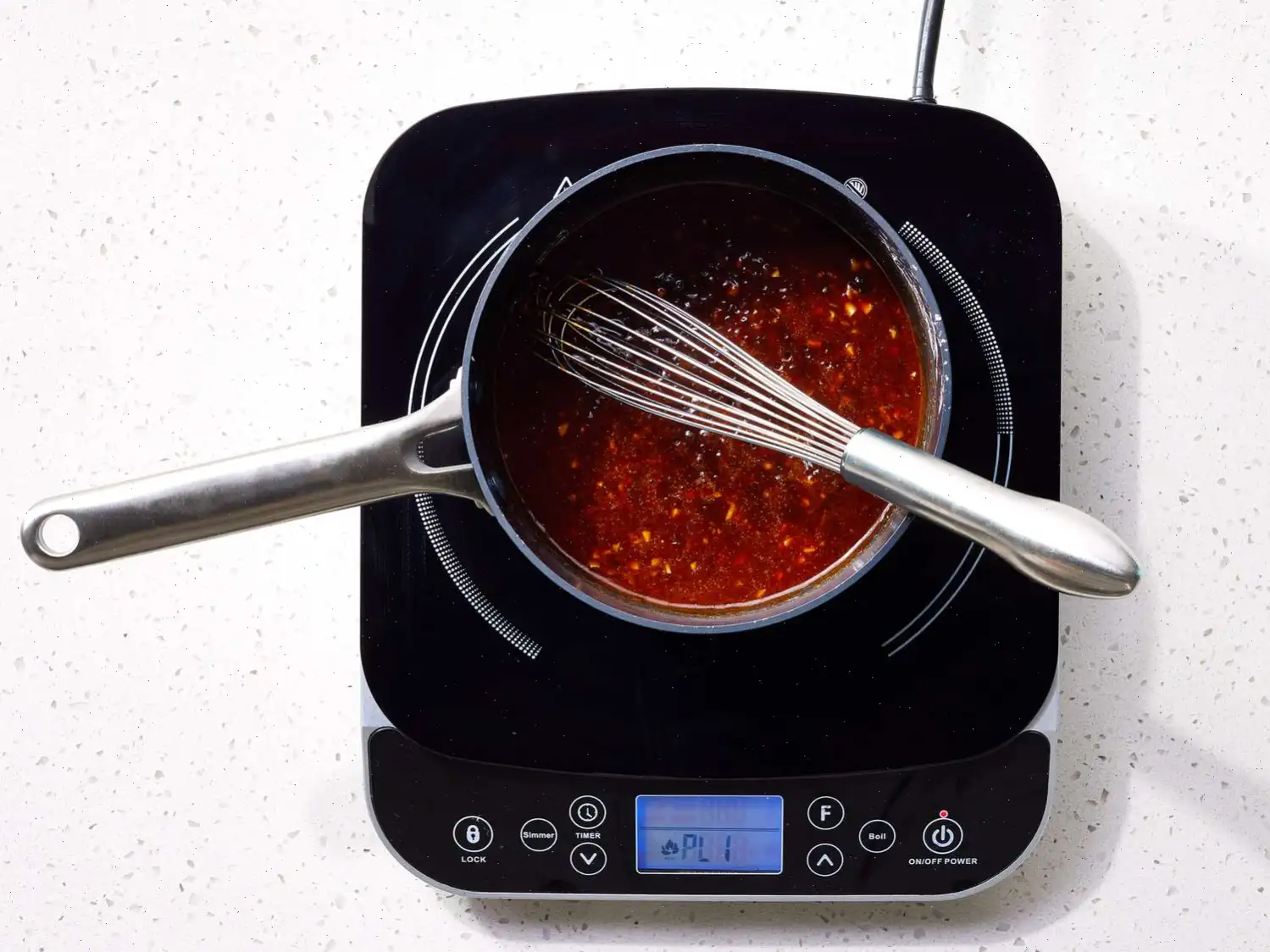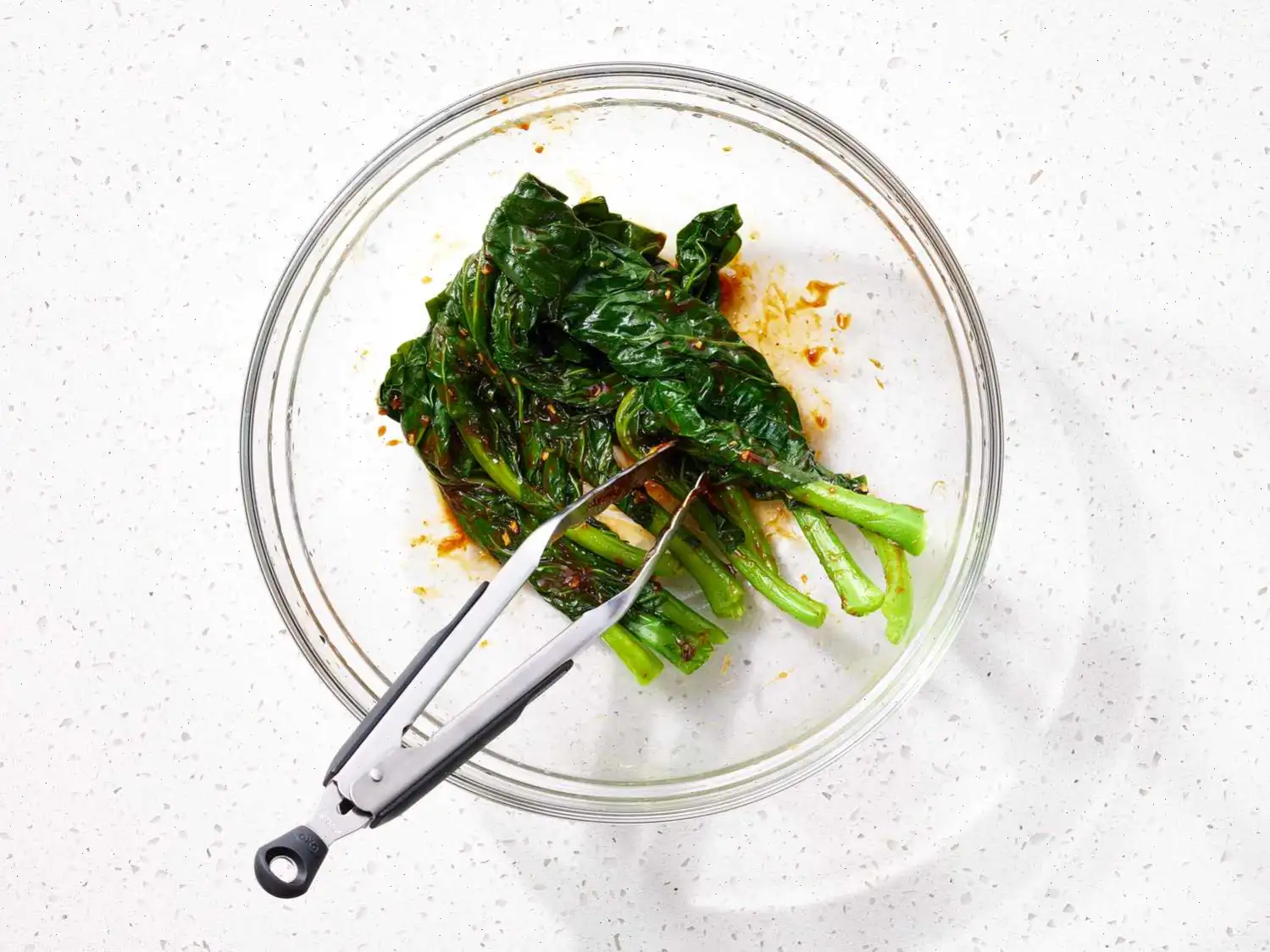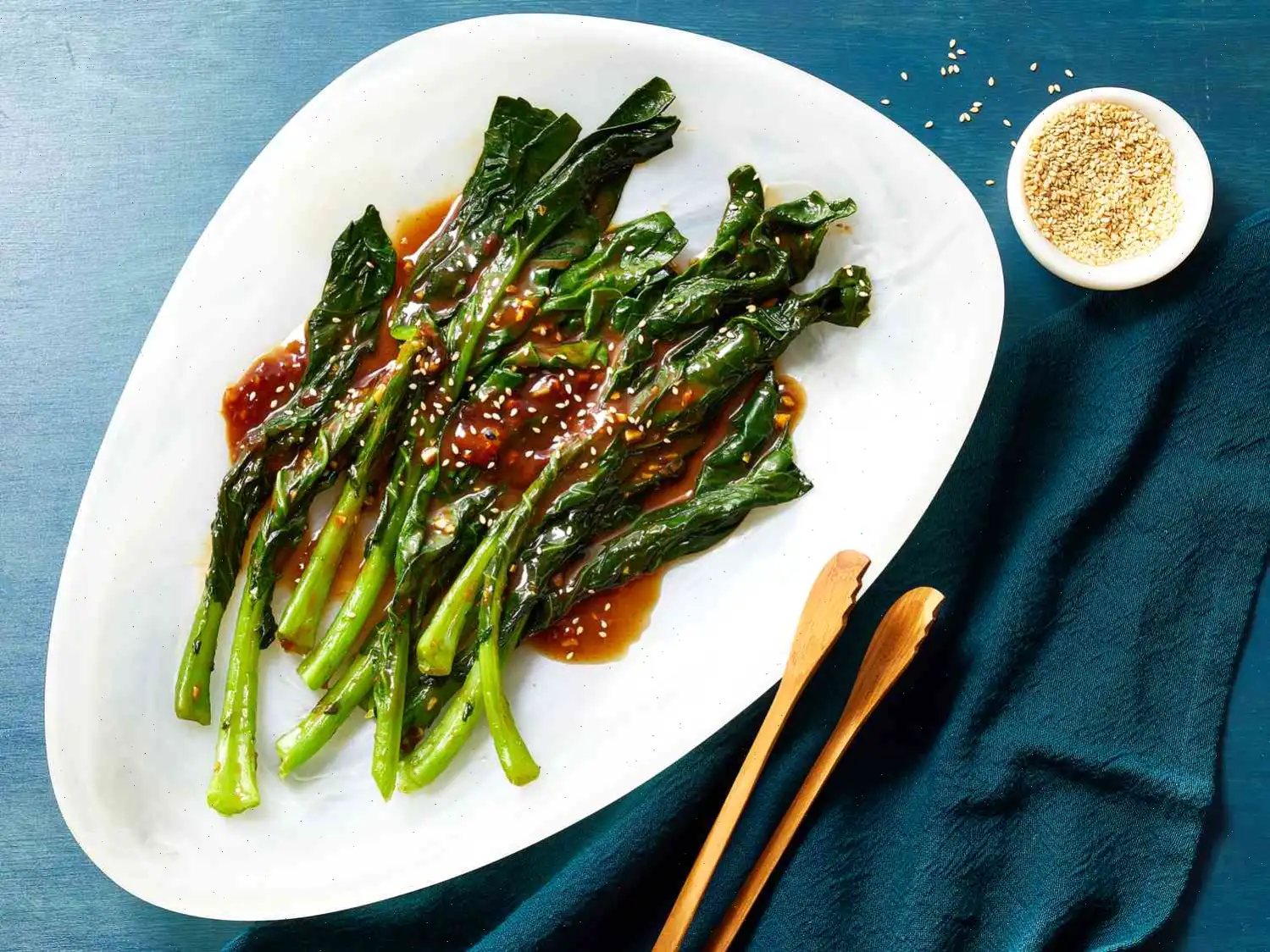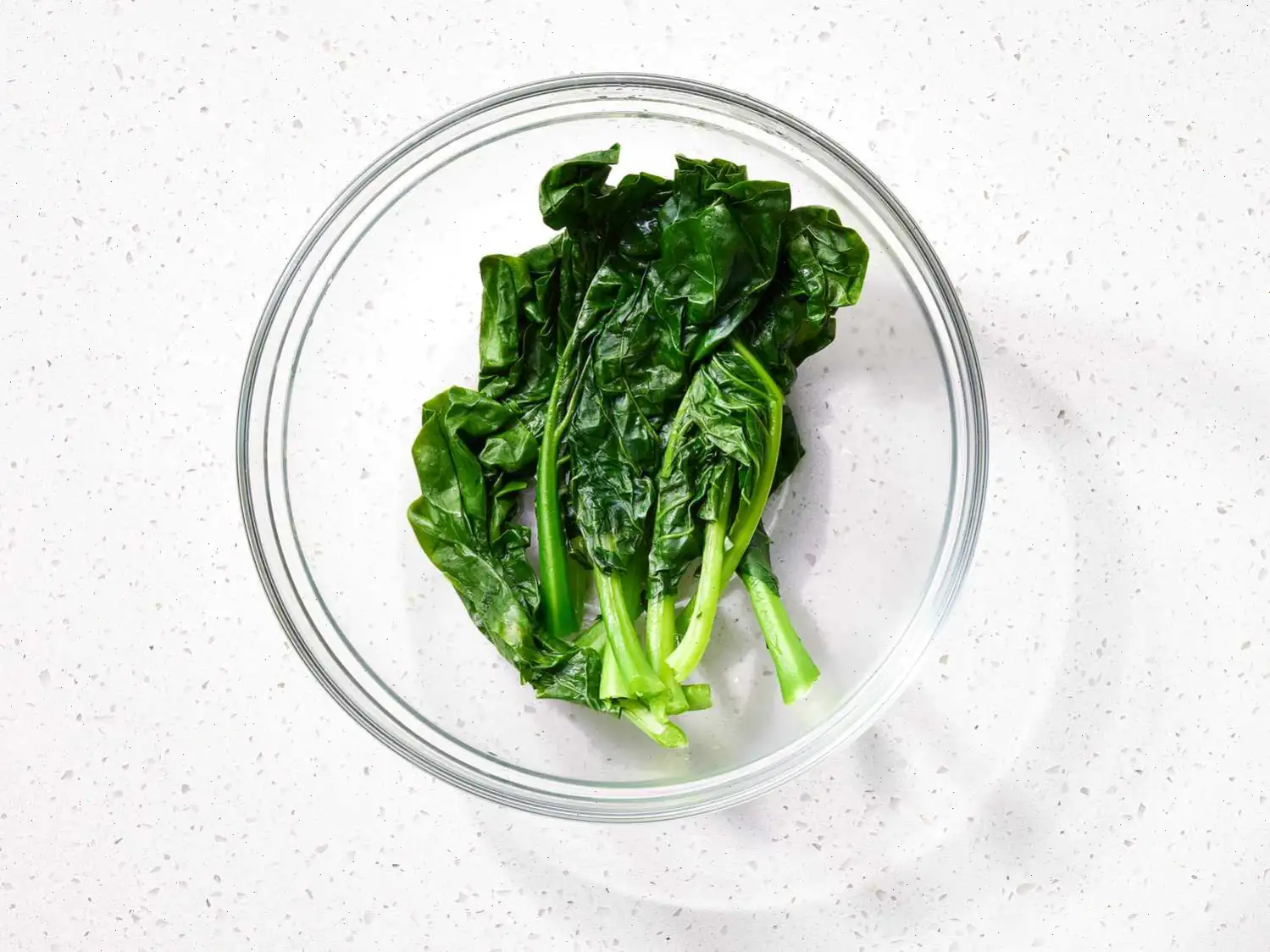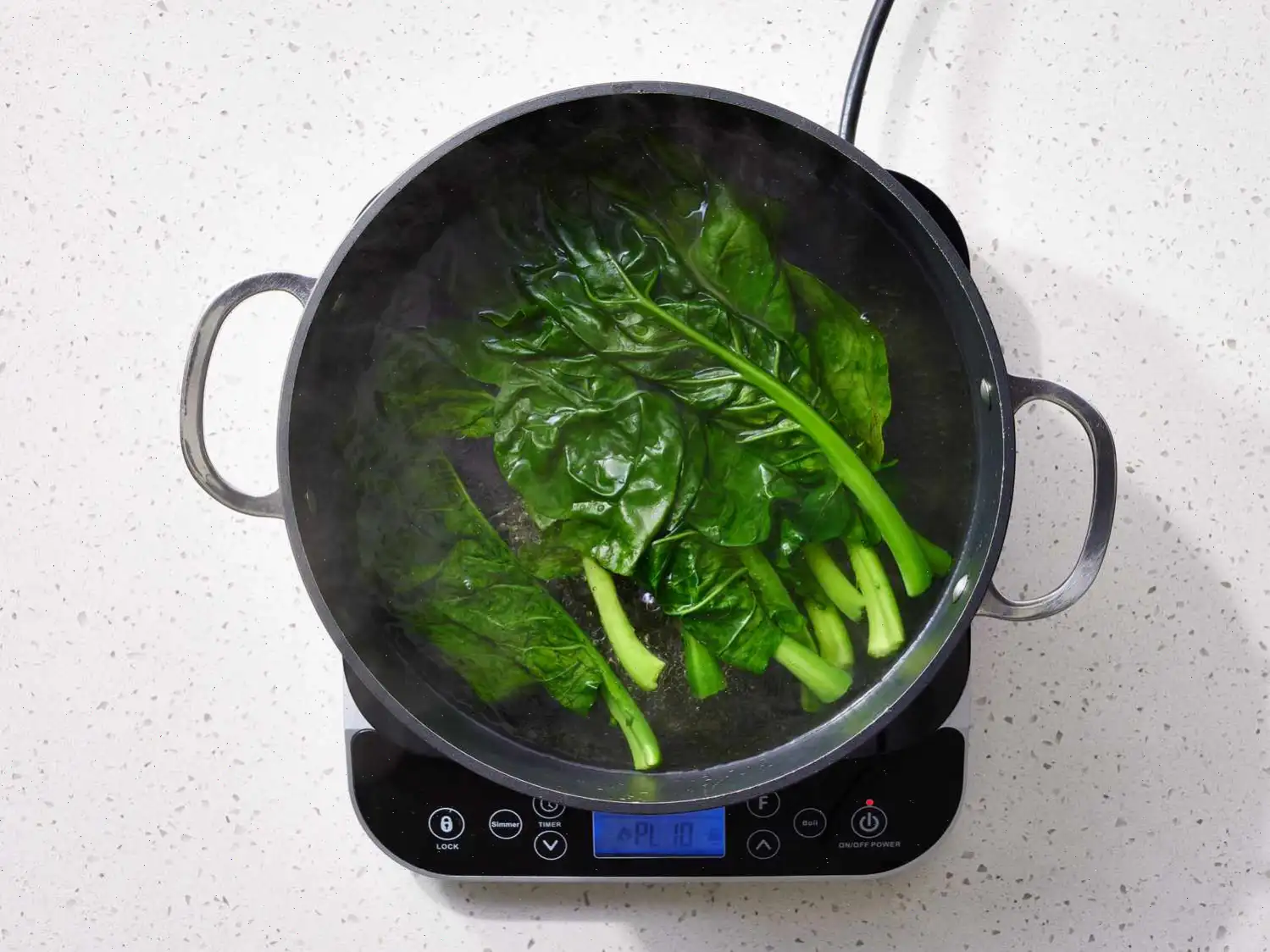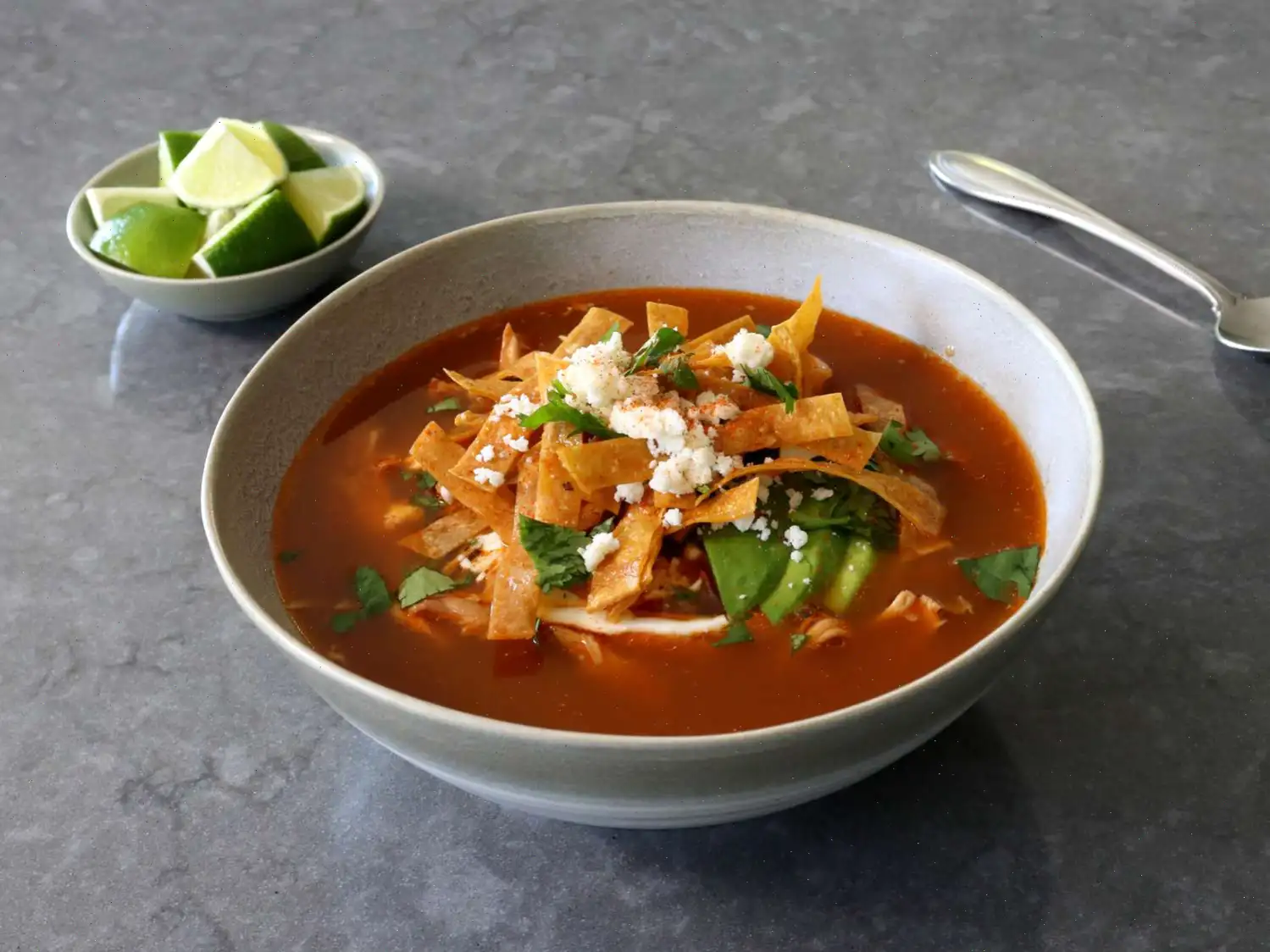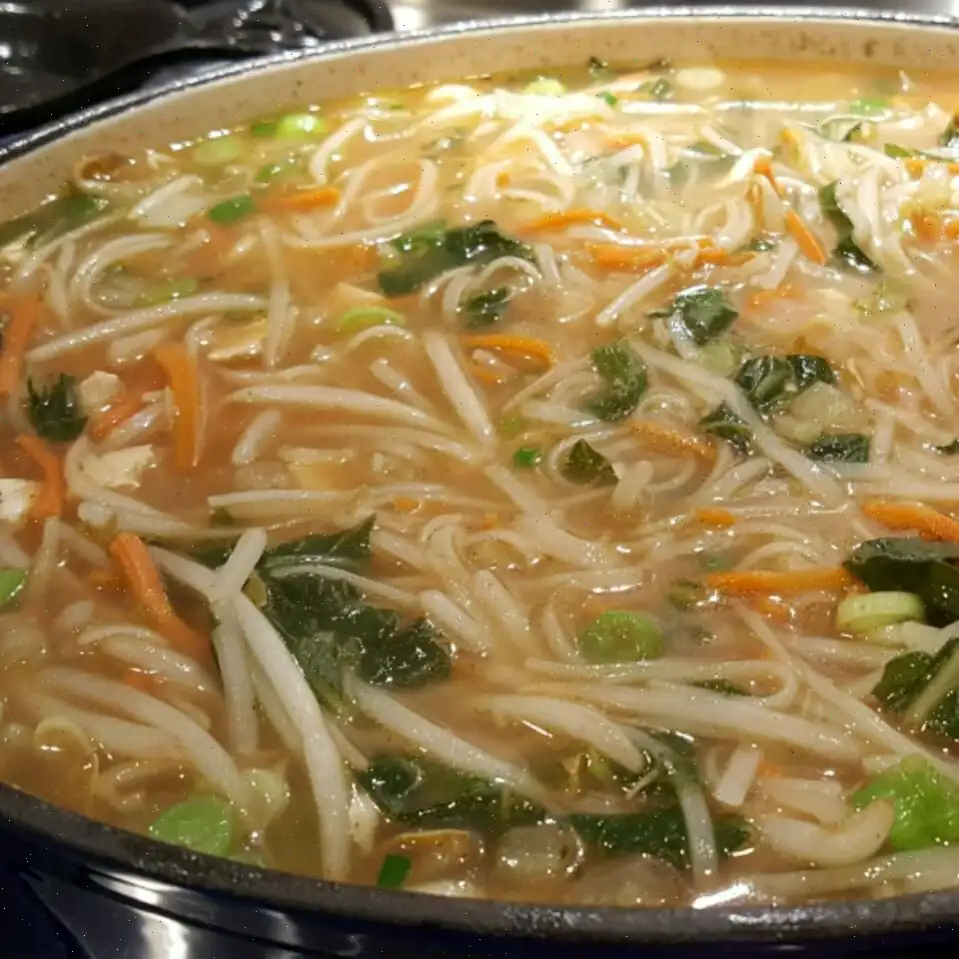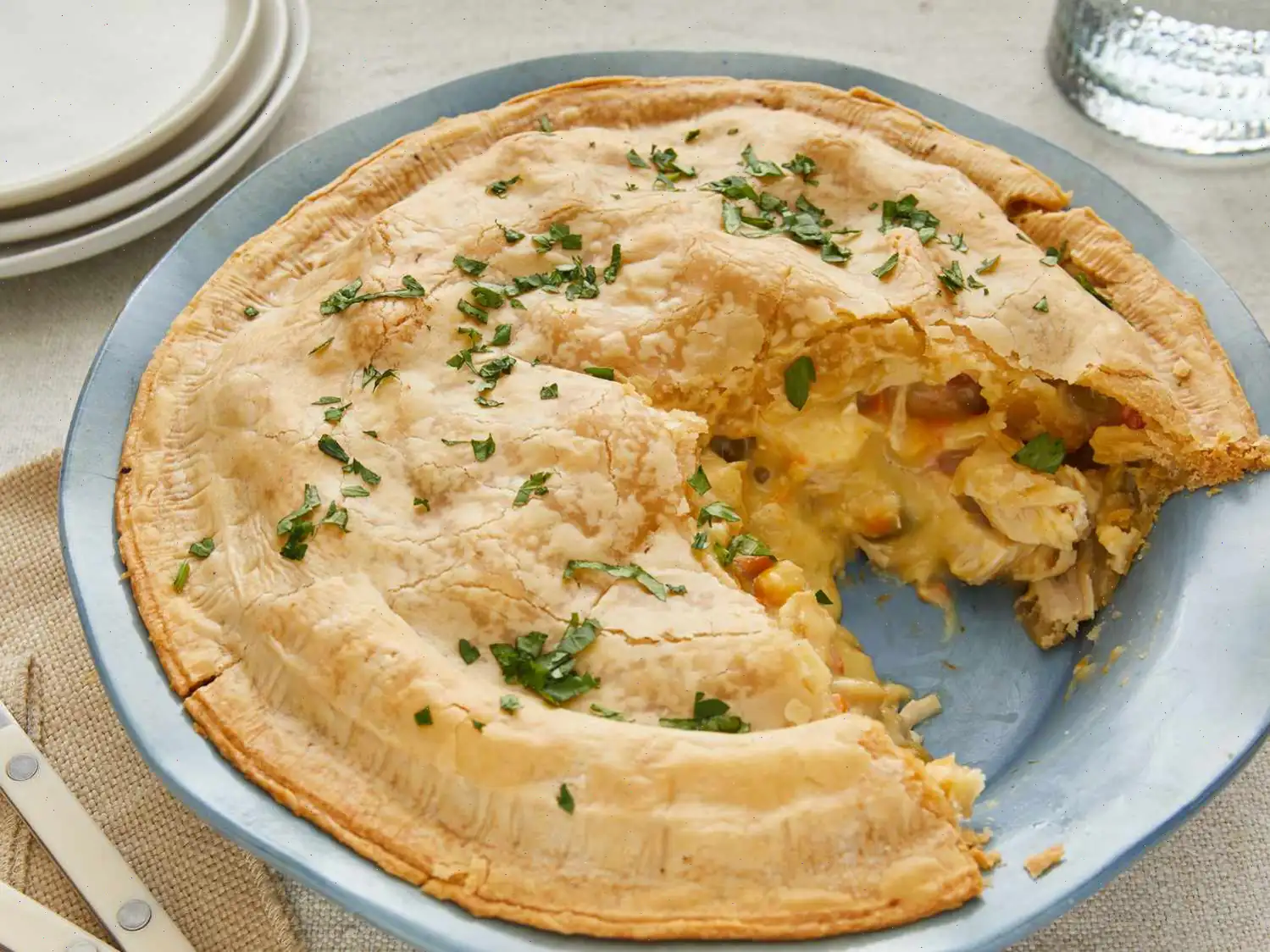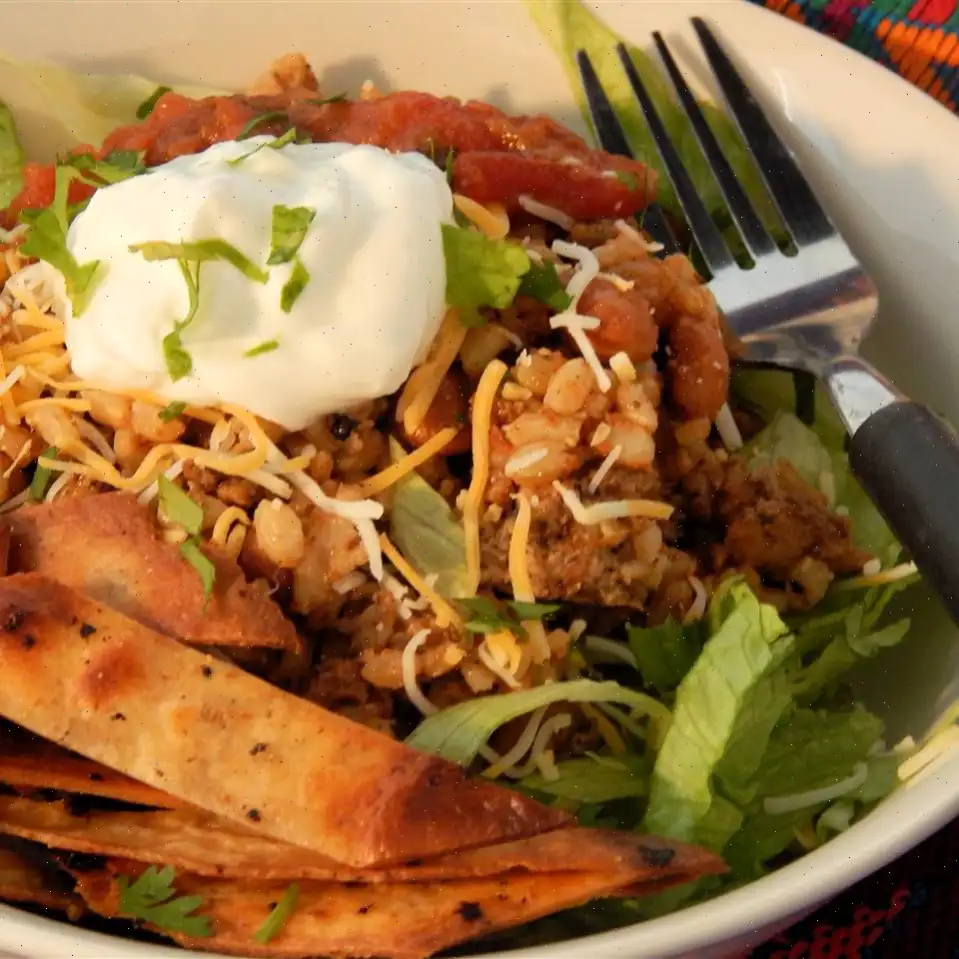
Chinese Broccoli Recipe
Ingredients
- 1 bunch gai lan (Chinese broccoli), trimmed
- 3 tablespoons hoisin sauce
- 2 tablespoons white sugar
- 2 tablespoons soy sauce
- 1 tablespoon cornstarch
- 1 tablespoon rice vinegar
- 1 tablespoon sesame oil
- 2 cloves garlic, minced
- 1 teaspoon minced fresh ginger root (or to taste)
Directions
Step 1: Gather all the ingredients and prepare them for cooking.
Step 2: Bring a large pot of lightly salted water to a boil.
Step 3: Add the gai lan (Chinese broccoli) to the boiling water and cook, uncovered, for about 4 minutes until its just tender. Drain the broccoli and place it in a shallow bowl.
Step 4: In a small saucepan, whisk together hoisin sauce, white sugar, soy sauce, cornstarch, rice vinegar, sesame oil, garlic, and ginger. Place the saucepan over medium heat and cook, stirring occasionally, for 5 to 7 minutes, or until the sauce thickens and becomes clear.
Step 5: Pour the prepared sauce over the cooked Chinese broccoli and toss gently to coat. Serve immediately.
Nutrition Facts (per serving)
| Nutrition Item | Amount per Serving |
|---|---|
| Calories | 101 |
| Total Fat | 4g |
| Saturated Fat | 1g |
| Cholesterol | 0mg |
| Sodium | 634mg |
| Total Carbohydrates | 15g |
| Dietary Fiber | 1g |
| Total Sugars | 10g |
| Protein | 1g |
| Vitamin C | 7mg |
| Calcium | 32mg |
| Iron | 0mg |
| Potassium | 115mg |
* Percent Daily Values are based on a 2,000 calorie diet. Your daily values may be higher or lower depending on your calorie needs. Nutrient information is based on available data and may not include all ingredients.
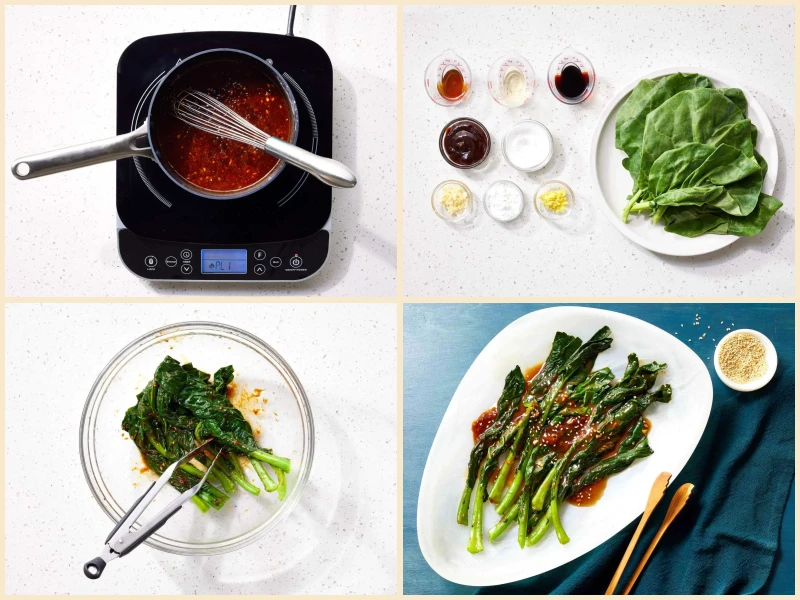

Chinese broccoli, also known as Gai Lan, is a beloved vegetable in Chinese cuisine. It is often cooked with a savory sauce to highlight its unique flavor profile. Below, we delve into the history, regional variations, and other interesting aspects of this dish.
History and Origins
Chinese broccoli, or Gai Lan, has its roots in Southern China, where it has been a staple vegetable for centuries. It is believed to have been cultivated in the region for its ability to grow in a variety of soils and climates. The vegetable is closely related to the common broccoli but differs in its texture and flavor, with longer, thicker stems and a more bitter taste. Gai Lan is often prepared with savory sauces to balance out its natural bitterness, which makes it a popular ingredient in both home-cooked meals and restaurant dishes.
Regional Variations
While Chinese broccoli is widely enjoyed across China, different regions have their own unique twists on how it is prepared. In Guangdong province, for example, Gai Lan is commonly stir-fried with oyster sauce, while in Hong Kong, it is often blanched and served with a sweet and savory hoisin sauce. In Taiwanese cuisine, a similar version might include pickled ginger for an extra layer of flavor. The versatility of this vegetable allows it to be adapted to a variety of culinary styles, all while maintaining its distinct taste.
Comparison with Similar Dishes
Gai Lan is often compared to regular broccoli, but there are significant differences in both appearance and taste. While regular broccoli has a more familiar, mild flavor and softer texture, Chinese broccoli boasts a slightly bitter, more earthy taste. Additionally, the stems of Gai Lan are thicker and meatier than those of broccoli, making it ideal for stir-frying or steaming. Another popular vegetable, Chinese mustard greens, is sometimes used as a substitute for Gai Lan, but it tends to have a more pungent flavor. The use of different sauces and cooking methods also sets Gai Lan apart from its Western counterparts, adding more depth to the flavor profile.
Where It Is Typically Served
Chinese broccoli is a common sight on the tables of Chinese restaurants worldwide. It is often served as a side dish alongside stir-fried meats, rice, or noodles. In dim sum restaurants, it may be featured in small servings with a light drizzle of sauce. In home kitchens, Gai Lan is a versatile ingredient that pairs well with a variety of proteins such as chicken, beef, or tofu. It is also a popular choice in vegetarian dishes due to its satisfying texture and nutritional benefits. In some regions, it is served with a simple garlic sauce or stir-fried with ginger and soy sauce to bring out its natural flavor.
Interesting Facts
1. Gai Lan is a highly nutritious vegetable, rich in vitamins A and C, as well as fiber and calcium. It's often recommended for maintaining healthy skin and boosting the immune system.
2. The bitter taste of Gai Lan is one of the reasons it is so beloved in Chinese cuisine. The bitterness helps balance out the sweetness of other dishes and complements rich, savory sauces.
3. Despite its popularity in China, Gai Lan is not as well known outside of Asian cuisine. However, it is gaining popularity in Western countries as people become more adventurous with their vegetable choices.
4. Gai Lan can also be grown at home, and it's considered relatively easy to cultivate. It thrives in cooler climates and requires minimal care, making it a favorite among home gardeners.
FAQ about Chinese Broccoli Recipe
Comments
Sharon Nelson
08/24/2022 01:14:13 PM
My take on the sauce recipe includes: 1 tablespoon of Worcestershire Sauce 1 tablespoon of Lite Soy Sauce 1 tablespoon of Vinegar 1 tablespoon of Sesame Oil 1/2 teaspoon of Ground Ginger 2 tablespoons of Minced Garlic 1 teaspoon of Black Pepper Feel free to incorporate sautéed mushrooms and onions into the sauce for extra flavor, if you like.
Brian Nelson
08/24/2023 06:58:56 AM
I enhanced the recipe by including 1 chopped green pepper, 1/2 cup of baby carrots, adjusting the soy sauce to 1/3 cup, and incorporating 1 cup of chicken broth. The outcome was delightful! The addition of red pepper flakes truly elevated the flavors of this dish.
Richard Collins
04/22/2024 03:46:00 AM
This sauce is absolutely delicious! I decided to use it as a stir fry sauce and came up with a little twist - I coated the chicken in it instead of adding cornstarch directly to the sauce. It thickened up beautifully and when combined with veggies, it made for a fantastic and easy dinner option.
Donna Mitchell
09/29/2022 07:04:19 PM
The dish turned out great using the ingredients we had available. I made some modifications by adding 1 tsp of toasted sesame oil, 1 Tbsp of sugar, 1/2 tsp of powdered ginger, and 1 Tbsp of champagne vinegar. I also added water as needed to reach the desired consistency. I served the sauce over fresh broccoli that was pan-fried with a drizzle of olive oil and a sprinkle of salt.
Scott Perez
12/07/2024 10:08:44 AM
I absolutely adore this recipe! I will definitely be making it again. Thank you so much for sharing! ❤️
Jerry Roberts
12/24/2024 02:30:52 AM
This recipe turned out wonderfully using ingredients we already had at home. I made a few modifications by adding 1 teaspoon of toasted sesame oil, 1 tablespoon of sugar, 1/2 teaspoon of powdered ginger, and 1 tablespoon of champagne vinegar. I also adjusted the consistency with water. Served the sauce over freshly pan-fried broccoli with a bit of olive oil and salt. Delicious!


